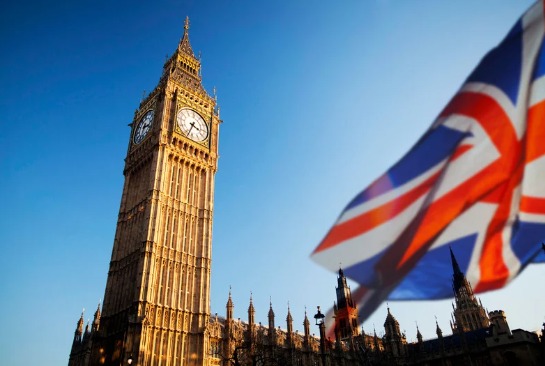The UK Marriage Visa, also called the Spouse Visa, lets non-UK nationals live with their British or settled partners in the UK. It gives spouses and civil partners a legal way to stay together and apply for permanent residency after five years.
The Spouse Visa is for people married to British citizens, those with ILR, or refugees in the UK. It lets them live, work, and study in the UK. To qualify, they must prove their relationship is real and show they can support themselves without government help.
To get approved, applicants must meet all requirements. The UK government carefully checks each case, asking for proof of a real and lasting relationship, financial stability, and English skills. Missing any requirement can cause delays or rejection. To improve the chances of approval, applicants should understand the process, gather all needed documents, and follow immigration rules.
Types of UK Marriage Visas
The UK has two main marriage visas: the Fiancé(e) Visa and the Spouse Visa. They have different rules, requirements, and ways to get permanent residency.
Fiancé(e) Visa (Prospective Marriage Visa)
The Fiancé(e) Visa is for people who plan to marry a British citizen or a settled person in the UK. It lets them enter the UK to get married or have a civil partnership within six months.
Who Qualifies
To be eligible for a Fiancé(e) Visa, the applicant must:
- Be engaged to a British citizen or a person with indefinite leave to remain.
- Intend to marry within six months of arrival in the UK.
- Demonstrate a genuine and subsisting relationship.
- Meet the minimum financial requirement.
- Prove adequate accommodation in the UK without relying on public funds.
- Satisfy the English language proficiency requirement.
Duration and Conditions
The Fiancé(e) Visa lasts for six months and does not allow work or government benefits. The applicant must marry their partner within this time to stay longer in the UK.
Transition to a Spouse Visa
After getting married or entering a civil partnership, the visa holder can apply for a Spouse Visa from inside the UK. This lets them stay longer and allows them to work and study.
Spouse Visa
The Spouse Visa is for people already married to or in a civil partnership with a British citizen or a settled person. It allows them to live, work, and study in the UK and apply for permanent residency after five years.
Eligibility for Those Already Married or in a Civil Partnership
To qualify for a Spouse Visa, the applicant must:
- Be legally married to or in a recognized civil partnership with a British citizen or settled person.
- Prove that the relationship is genuine and ongoing.
- Meet the minimum financial requirement.
- Provide evidence of suitable accommodation in the UK.
- Demonstrate English language proficiency.
Duration and Renewal Process
The initial Spouse Visa is granted for 30 months (2.5 years). Before it expires, the applicant can apply for a 30-month extension, provided they continue to meet the visa requirements.
Pathway to Permanent Residency
After living in the UK for five years on a Spouse Visa, the applicant can apply for Indefinite Leave to Remain (ILR). ILR gives permanent residency, removing immigration limits and allowing free access to work, study, and public services. After getting ILR, they can also apply for British citizenship if they meet the requirements.
Eligibility Requirements
To get a UK Marriage Visa, applicants must follow strict rules. They must prove their relationship is real, have enough money, and meet language and housing requirements. If they don’t, their visa may be delayed or denied.
Relationship Requirements
Applicants must show that their relationship is real and ongoing with strong proof. The UK government needs evidence that both partners are committed and plan to live together permanently. They should provide documents like:
- Marriage or civil partnership certificate.
- Photos taken together at different times and locations.
- Travel records showing visits to each other.
- Correspondence (emails, chats, or call logs).
- Joint financial commitments (bank accounts, tenancy agreements).
Age and Marital Status
Both partners must meet specific age and marital status requirements before applying for a UK Marriage Visa.
- Both the applicant and their UK partner must be at least 18 years old at the time of application.
- If either partner was previously married or in a civil partnership, they must provide legal proof of dissolution (divorce decree, annulment, or death certificate of a former spouse).
Financial Requirements
The sponsoring partner (British citizen or settled person) must meet minimum financial requirements to prove they can support their spouse without relying on public funds. The current financial requirement is £18,600 per year for the sponsoring partner. If there are dependent children, the minimum income increases:
- £22,400 for one child.
- An additional £2,400 for each extra child.
The required income can come from:
- Employment (salary, payslips).
- Self-employment (tax returns, business accounts).
- Savings (cash savings of at least £62,500 can be used instead of income).
- Pension income.
- Rental or investment income.
Applicants must also provide:
- Payslips (last six months).
- Bank statements showing salary deposits.
- Employment contract or letter from an employer.
- Tax returns (for self-employed applicants).
- Savings account statements (if using savings).
English Language Requirement
Applicants must prove they can speak and understand English at the required level. Applicants must pass an approved English language test at A1 level or higher (Common European Framework of Reference – CEFR). Recognized test providers include:
- IELTS (UKVI approved).
- Trinity College London exams.
An applicant may be exempt if they:
- Are from an English-speaking country (e.g., USA, Canada, Australia).
- Hold a degree taught in English (with a recognized UK NARIC certification).
- Have a long-term physical or mental disability preventing them from taking the test.
Accommodation Requirement
Applicants must show they have adequate accommodation in the UK that meets housing standards and does not create overcrowding. Acceptable documents include:
- Tenancy agreement (if renting).
- Property ownership documents (if the sponsor owns the home).
- Letter from the homeowner confirming permission to stay.
- Utility bills or council tax statements showing residency.
Application Process
To apply for a UK Marriage Visa, you must follow the rules carefully. You need to fill out an online form, pay the fees, go to a biometric appointment, and submit documents. Doing everything correctly increases your chances of approval.
Online Application
Applicants must apply online through the UK government’s official website. They must use the UK Visas and Immigration (UKVI) portal. If applying from outside the UK, they must do so from their home country or legal residence.
- Choose the correct visa category (Spouse Visa or Fiancé(e) Visa).
- Provide personal details, relationship history, and financial information.
- Answer all questions honestly and accurately.
- Double-check all entries before submission to avoid delays or refusals.
Once the form is completed, applicants will receive a Unique Application Number (UAN), which is needed for tracking the application.
Paying the Application Fee
After submitting the online form, applicants must pay the visa processing fee.
- Spouse Visa application fee (outside the UK): £1,846
- Spouse Visa extension (inside the UK): £1,048
- Fiancé(e) Visa application fee: £1,846
Additionally, applicants must pay the Immigration Health Surcharge (IHS), which grants access to the UK’s National Health Service (NHS). The IHS fee is £1,035 per year for adults. Applicants can pay using:
- Debit or credit card.
- Online bank transfer (in some countries).
- Other country-specific payment options available on the UKVI website.
Scheduling and Attending a Biometric Appointment
After payment, applicants must book a biometric appointment at a Visa Application Centre (VAC) in their home country. At the appointment, applicants must:
- Provide fingerprints and digital photographs.
- Submit their passport and supporting documents (if required).
- Confirm personal details to ensure accuracy.
A receipt confirming the biometric submission will be provided, which should be kept for future reference.
Submitting Supporting Documents
Providing the correct supporting documents is crucial for a successful application. Documents must be clear, valid, and translated into English).
- Valid passport (applicant and UK sponsor).
- Marriage or civil partnership certificate (or proof of intent to marry for Fiancé(e) Visa).
- Proof of a genuine relationship (photos, messages, call logs, travel records).
- Financial documents (payslips, bank statements, tax returns).
- Accommodation proof (tenancy agreement, property ownership documents).
- English language test certificate (if required).
- TB test certificate (if applicable, depending on the applicant’s country).
Frequently Asked Questions(FAQs)
How Long Does it Take to Process a UK Marriage Visa?
Processing times take 3 to 6 months. Priority services may be available for faster decisions.
Can I Switch from a Fiancé(e) Visa to a Spouse Visa?
Yes, after getting married in the UK, you can apply to switch to a Spouse Visa from within the UK.
What Happens if My Visa is Refused?
You may appeal, request an administrative review, or reapply with additional evidence to address the refusal reasons.
Conclusion
To get approved, know the visa types, follow the rules, and complete each step carefully. Be well-prepared. Give correct information, meet money and housing requirements, and prove your relationship is real. A complete application helps avoid delays or rejection.






